To Pivot or to Pause with Jenny Blake
Want the transcript? Download it here.
In this episode, Barbara Turley speaks to Jenny Blake about the Concept of Pivoting. They talk about taking control of your business and recognizing the opportunities that are out there in the midst of the current global crisis.
Some of the key points include:
- How to pivot your business
- How far ahead should you plan when pivoting
- Should you pivot your business or should you hold off
Let us know what your key takeout has been from this episode and join the continuing conversation over in the Virtual Success Facebook Group.
In this episode:
02:23 How to get the right mindset when pivoting
05:11 How to listen more effectively
08:55 Rising into a pivot from a negative mindset
13:05 The Next Steps
15:52 The Pivot Runway
20:26 The Important thing about pivoting
22:30 Final thoughts
25:09 Wrapping things up
Intro: Do you find yourself running out of time to accomplish your work, are you spending time doing things that you’re not that good at? There are effective ways to outsource these tasks so you can focus on your business. This is the Virtual Success Show, we bring the inside scoop on outsourcing success for entrepreneurs by entrepreneurs. And now, here are your hosts Matt Malouf and Barbara Turley.
Barbara Turley: Hey everyone social medialand… Welcome to another episode of our special COVID-19 series of the Virtual Success Show podcast. I’m your host, Barbara Turley and today I am joined by somebody who has become somewhat of a friend. Jenny Blake is author of pivot, the book called “Pivot: The only move that matters is your next one” and she also hosts the podcast, Jenny what’s the name of the podcasts?
Jenny Blake: Pivot with Jenny Blake
Barbara Turley: Yeah so welcome to the show, Jenny and she’s here to talk to us today about this whole concept of pivoting, it’s very easy to talk about it and everybody out there right now is talking about how in this crisis, that you know of course there’s gonna be opportunity there’s gonna be opportunity absolutely everywhere because in every crisis there is and those who know how to pivot, and those who can handle the pace of pivoting and pull it off can do quite well. From my own experience over the last what, we’re five weeks into this whole thing, 5-6 weeks into this thing and what I have personally found difficult and I wanted to talk to Jenny about this today is, you know when you’re coming out of saving your business in the initial stages of the crisis and then you have to try to shift very quickly into a different frame of mind, which is the creative side of yourself.
To try to pivot your business and get the animal spirits flowing again of entrepreneurship and it’s hard to wake up every day and to try and get yourself into the right mindset to do it, when you’ve come out of kind of being you know, beaten over the head every day with your ops and trying to save your clients and save the business. So Jenny, welcome to the show and talk to us about you know, how do we quickly shift this mindset and how much of it is mindset, if you can talk to us about that.
How to get the right mindset when pivoting
Jenny Blake: Well there’s so much that you said there and I think one thing is giving ourselves permission to be on this roller coaster and have, that’s really one we do train for us entrepreneurs, is that exact journey, that exact roller coaster, but right now during a global pandemic, a crisis, the volume to such metaphors, the volume on that station just got turned all the way up to a ten. So we’re gonna, I feel that the highs are high and the lows are pretty low and what you described Barbara is so important is, I don’t know about you but I also, simultaneous to all the stress I felt a lot of adrenaline tried to navigate every single day these first five weeks and I do a lot of keynote speaking and traveling for work, all of that was canceled, not all of it went straight to virtual.
So there is a big lull in my business and a lot of companies that I do large-scale pivot programs have their budgets on hold because they’re doing the same thing we are, trying to batten down hatches, tighten the belts and weather the storm. So, I found myself with adrenaline, the highs and lows and then as you said, now, they’re still, I still feel we’re in listening mode, a little bit of what do people really need.
There is a lot of noise now of everyone who is kind of freaking out and figuring you know how do we pivot during this time, so for me listening comes a little bit before creating and sometimes in parallel too and during the creation process and part of the skill of this and entrepreneurs have already a great head start is navigating the creative process, staying open to that, staying receptive so that we’re not in panic mode because you can’t create from panic mode. While still holding the operational side in our minds and still addressing that because I don’t think we’re done making those shifts either.
Barbara Turley: Yes, I love that you’ve said listening, because I definitely I think the pressure I was feeling, I can imagine a lot of people out there are feeling the same, is that you feel this pressure to, “Okay I’ll fix that, I’ve done that bit, I now need to pivot” and you’re sort of thinking well, I actually did it quite quickly and I developed this whole new thing that we were going to go out to market with and we haven’t, because something in my gut has sort of said to me, “Hold on, maybe just follow the horse up there for a second”.
I’ve questioned why I been holding off, it doesn’t feel quite right yet, and probably because I think what you’re saying I just went straight for the pivot and didn’t necessarily listen that deeply and the market is still trying to figure out what it’s doing itself and where this is all landing. But how long should we listen for? I mean you know, when you say listening, can you give us some tips around how to sort of, how to listen, how to listen more effectively to what’s really out there.
How to listen more effectively
Jenny Blake: I love what you just highlighted which is listening to your own intuition and I’ll give you a similar example with all my big corporate programs on pause or cancelled or postponed. I started to think, well should I just email all my former coaching clients and bring on a whole slew of coaching work which is what I did to sustain myself as bridge income for nine years but I made the commitment to myself in 2020 that I wanted to work on the business, not delivering services. So even though I like coaching, in fact I often love coaching, I’ve been doing it since 2008. I, just like you, I’m hesitating because there’s something about it that isn’t honoring my original intention and where I saw myself growing in the vision.
It would almost be a move, a stopgap move and I’m not ready to make that move yet and I do think that it’s important to pause until you feel very clear, that yes I would choose this path, not just out of fear but out of excitement and possibility because otherwise even the pivot you were thinking of making with your team there’s probably a very valid reason that you haven’t hit the launch button yet and it’s important to know what those are and I think that’s part of not freaking out and that’s a privilege depending on how much cash runway each of it has as well, so there may come a point where that runway is totally gone and we need to do whatever it takes and that’s fine too, but what you’re highlighting is not jumping straight to whatever it takes such that you’re digging yourself out of a project-based hole on the other side of this, in addition to financial.
Barbara Turley: Yeah, that’s really good advice, yeah
Jenny Blake: In terms of specific strategies for listening, things like getting on the phone with former clients, current clients, and you Barbara, potential clients, so the reason we’re here today is that instead of having someone on your team, take my inquiry about working with you, you got on the phone and so in a way, that helps you get more closely in touch with the people that you’re serving and what they need-
Barbara Turley: Yeah, I was telling you that I needed, I felt the need to know these calls with clients now because I wanted to listen to what people were asking for now. So actually, there might be, I suppose I was kind of listening.
Jenny Blake: And it puts you in closer touch with the pulse of your business and your client base and I’ll share just one more strategy because I think it’s brilliant, my friend Leanne Hughes, she hosts a podcast called First-time facilitator in Australia. She put her listening to her right out on the podcast, she said “If any of you listening want to book me for 20 minutes, I just want to hear what’s on your mind, here’s my Calendly link and let’s chat”. So that’s an open call you know, it goes far beyond, even her current clients and just anybody that happens to be listening, so imagine, though I call it serendipity popcorn of that. Who’s gonna schedule? and Barbara, say, to you and your team’s credit, you also have an open scheduling link on your website, so it’s very broad, in a way you’re constantly listening by doing that.
Barbara Turley: Yeah and what I wanted to sort of veer into now is, I think for me, what ended up happening and you know, I like to share my own experience with this, so you know you guys listening to this, this is actually coming from my own experience, what I’ve been going through and I know others are going through this. I sort of realized that I had made that knee-jerk reaction of thinking that I had to pivot, because everyone’s talking about it but maybe you don’t have to, so I just want to talk, I’ve sort of come to the conclusion that I might not need to and maybe it will be distracting to pivot but I want to just focus on for a second.
The businesses that have been decimated, right… there are some that are just been completely decimated, cash flow completely gone to zero and maybe they’re in a really bad headspace and they’re struggling to figure out, do I just give up, you know am I just dead in the water or how do you come out of that and then rise into a pivot from that mindset.
Rising into a pivot from a negative mindset
Jenny Blake: Well, what a great question and I can’t even say I’m the expert on that because we’re all still living through it, it’s almost I’m picturing the phoenix rising from the ashes, we just don’t know what the phoenix looks like. The entrepreneur, the chef, the restaurant owner, you know the person, salon owner, there’s so many businesses, like you said that are just decimated. We don’t know if all of those businesses will survive, I’m sure there’s a percentage of people who are adamant that they come back online and they do whatever it takes to get back.
Then they’re gonna be some that take this time to pause and reflect and say “Was I happy with the way the business was going in my lifestyle and do I want to do things differently” and I think that’s for every individual person to sit with and they call it, this is a time of chaos and complete loss of control and even for so many people probably, the dark night of the soul, which I just heard someone on a podcast said, it’s the dark night of the ego. I think it was [inaudible] it’s the dark night of the ego, because the soul is light and the soul knows there is growth that can happen but it’s so hard when you’re right in the middle of it and they might not know what to do yet.
I mean part of the listening in that moment is actually just saying, I’m stuck here, show me one next step, and kind of surrendering every single day, to say I have no clue what to do, I am heartbroken, I’m devastated, I am under so much pressure, what’s just one thing I could do today.
Barbara Turley: I’m almost feeling like, you know as you were talking, I was thinking, you know, it’s actually okay for anyone listening out there that is in this situation, it’s also okay that if your pivot is to pivot into pause. That maybe, that is the listening, that maybe like you were saying, someone might actually look deep inside and say “Do you know what, I actually hated that business anyway, I was stressed out all the time”. Yes, things are terrible but maybe it is time for you to just pause and just to kind of get out in nature and you know, well, we can’t get out much because we’re all in isolation but you know to try to sit with yourself. And those who feel differently and loved what it was they were doing well, I suppose it doesn’t cost anything to get on the phone and talk to people like we’ve just been saying and I’ve been talking to people who are in the same industries as me, do the same business as me, clients, friends, people in different industries.
I’ve gotten on this podcast more just to talk to people and I find the more that I’m talking to people, the more ideas, the more my creativity is coming back and my energy is coming back because everyone’s sharing together. So maybe that’s the thing that you know anyone kind of really stuck at the bottom of the barrel right now can think about doing.
Jenny Blake: Yeah, I’m noticing too, like a little more creativity, the more I accept what all has just happened, you know. It’s just kind of, okay, that’s all happened, now from here Where do we go? Where now? Where do I feel called?, in a way it’s just page one or turning, closing the chapter on one book of our businesses and then we’re almost starting a new book now and how are we gonna write it, what’s it gonna be like, I also think that it’s very hard to build the plane while flying it. That’s something that you hear often especially in business, it’s really hard to do, that it’s hard to get clear on your systems, and your software, and your budget, and your team, while serving clients, and supporting people every day, and trying to make sales, and trying to negotiate contracts, and try to… so there’s a lot that when things slow down this much, for some of us, not everybody, there’s a real chance to recalibrate and actually refine a lot of that stuff behind the scenes. Which I know is something you and your team help people with.
Barbara Turley: Yeah we have been doing a lot of that recently, yeah. So I’m interested to delve and this might be a tricky question, I just thought of it on the hub, but the concept of the book, the only moves that matters is your next one. What I love about that statement is that, how far ahead should we be thinking? like you know, should we be trying to plan this all out? Or is it really only the next step that you do need to think about? And maybe just sort of unpack that for us a little bit more.
The Next Steps
Jenny Blake: In the book, I say that the five-year question is totally out of date, there’s even more in the business and entrepreneurship space now of saying you don’t even need a business plan, if anything it should be one-page, the authors of a book called “It doesn’t have to be crazy at work”, they’re also the co-founders of Basecamp, they call it a one-page business guest, that they say, no matter what-
Barbara Turley: I don’t even have one, I’ve never done one.
Jenny Blake: Exactly,
Barbara Turley: I just kind of go with it, you know
Jenny Blake: And what I find so funny is that, for years I didn’t have any specific goals in my business, starting when pivot came out in 2016, I didn’t, I had ideas and I had things that would be cool of course, I wanted it to get momentum and traction and ideally hit a tipping point someday and earn out the advance, but I was never really attached to all these very serious quarterly, okay hours, and business goals that everyone talks about. And last year I set a revenue target and then 2020, I was like okay let’s start tracking our metrics as a team, let’s get serious, boom and then as of March, it’s like, whatever goals that’s whatever even revenue targets, who knows by the end of the year maybe we’ll all hit what we set out to but if you look at the Q1 report, profit and loss report, it’s not nearly what any of us probably were expecting, even in January two months prior, so yeah it sounds like you operate this way as well but I think.
Barbara Turley: [inaudible] because I just think people go, “Can you give as your forecasting?”, I’m like, “Well I can, but I mean you know, this could happen, you know, like, where I come from, financial market where stuff happens all the time, I think yeah it’s you know, it’s just, you gotta get a kind of rough idea of where you’re going and then and then try to you know keep moving, keep moving out on a daily, weekly, basis yeah.
Jenny Blake: And I do think it’s important to have business streams of income, a diversified pivot portfolio as I call it. It’s important to have pivot runway, it’s important to know how does your business succeed, when things are going really well and the economy is flush and how do you stay afloat or even thrive when we’re in a downturn or a recession or a depression and it’s important to think that through because not all businesses are counter cyclical or not all businesses have prepared for that.
The reason… just to finish on the only move that matters is your next one, for me that’s about staying present and I know you’re similar but it’s that intuition about what’s the one next project or what’s the one part of the business that is working best that we can double down on and that you don’t have to know how it’s gonna turn out and you don’t need to attach to it either but if you keep following those clues, the years that I didn’t plan any goals at all, I still earned more… my revenue was still up into the right every single year, it’s just I wasn’t attached to it.
Barbara Turley: And what about you mentioned a pivot runway, talk to me about what is that what’s a pivot runway? I’m very interested to know, delve a bit deeper into this whole method in pivot method.
The Pivot Runway
Jenny Blake: Oh yeah, well thank you, I borrowed runway from the financial world and startups that runway is just how much cash you have, so if you look at your monthly net, your burn rate, how much are you spending each month and I do think there’s been a ton these last few weeks about, everybody look at what you’re subscribed to, cut back only to essential expenses, so many people have cut their team members, which is devastating, if you know, if you really like your team and are happy with the setup but you want to keep your business afloat to be able to bring them back on, so that’s what runway is. It’s just how much time do you have, until you have to pivot again, so what you and I were saying Barbara, in a way listening is a luxury, it means that you have some time to do that.
For some people they have to pay the bills in a week or two weeks and they just simply have to figure it out. Some might do that by talking to their landlord and asking can I postpone any and all things that I owe money on and others will say I’ll take any job even if it’s bagging groceries so that I make these commitments.
Barbara Turley: I love that we went there because that means the length of your runway is like you know, I think you know that’s probably as you say big in the startup world and those seeking funding and all that kind of thing but in the general… you know most smaller businesses are not thinking about it that way or maybe I’m the only one who wasn’t really thinking about it that way. I suppose maybe deep down I sort of had it in the back of my head but I hadn’t really formulated that as an idea and I think it’s important to know, what is that at any stage in the business. And it’s nearly more important than the forecasting of where you think you might be in three or four months time, it’s more what would be the runway if things change… yeah, so if the runway, you know tiny at the moment or non-existence, it’s gonna be harder to take off into a pivot.
Jenny Blake: Yeah and I like, oh that’s a cool analogy of like the actual runway of a plane, that’s true. Yeah it’s almost like taking off or landing, I like how Mike Michalowicz, he’s the author of Profit First, Clockwork, Fix This Next, some really great business books. He talks about contributing to your business reserve’s account and that, you know another way to put this, is business reserves, or on the personal fund, and emergency fund, and that ideally it has six months. Your emergency fund should have six months of your personal household living expenses and then the business reserves ideally would have six months of your operating expenses for the business, which is quite a large number, by the way. So,
Barbara Turley: I was thinking, does anyone really do that though? I mean you know, if you’re scaling a business, I mean this is the challenge, I think a lot of people were, when you’re trying to scale, I mean you know, do you have money on reserve or do you take risk on and invest in growing the business and all that sort of things. So I think that’s all great in theory.
Jenny Blake: And it’s so tempting, to just, it’s so tempting to reinvest the money and grow the business and I certainly have made that choice many many times, to the point where I don’t have six months of business reserves, I wish I did now, but…
Barbara Turley: Yeah, so that’s tricky… yeah
Jenny Blake: But I guess, maybe that’s something that will come out of this, is that moving forward we take a portion of every, this is the profit first method but just like we fund our tax account, for me every check that comes in gets divided into the profit first chunks of tax, operating expenses, owner pay, and profit, and maybe from going forward there just needs to be a fifth, called business reserves and it gets funded from every single deposit that goes in-
Barbara Turley: Well, I suppose it’s all about de-risking, I mean you know, business going, you know entrepreneurship is risky but I mean, there are ways to de- risk this. If you can come out of this strong and or you know, just come out of this thing and I mean I’m a firm believer but there’s gonna be so much opportunity in this market. I mean you know, the last crisis we had was the 08 or 09 thing, which is you know, 10 years ago a bit more now, so we are due this, we were actually due this crisis, I mean who knows which way it happens but you’re due a massive rumble every 10 years this one, 7 to 10 years.
So there will be massive opportunity coming out of this for those that can pivot and then you know, maybe we work over the next year or two, on making sure that we have that reserve thing going. And any final tips for us on you know what’s like, is there a crucial sort of one thing to remember that you want to share with us about pivoting.
The Important thing about pivoting
Jenny Blake: Sometimes during a crisis or when it feels like everything’s falling apart it’s easy to focus on what’s not working, what’s broken, what we don’t want, what we don’t have, what we lost. That’s part of the grief process, and it’s important, but it’s not gonna move anything forward necessarily. So I do think what’s most important and the crux of the pivot method is double down on what’s working and what brings you the most energy, so look at both pre-pandemic what was working best, what was producing the most revenue, at the most ease and the most joy, what energizes you most as the founder or the owner of the business, and you can ask this of course of your team members too and I do think it’s still important to say what does success look like, so it’s just like you, Barbara. We were due for this, we can come through this stronger, as hard as it may be to picture 3 or 6 months from now or even by the end of the year, what will weathering this successfully look like for you and for your business, what would be happening, you know and painting that, doubling down on what’s working and painting the picture of what’s possible. It’s so important, it’s like on Google Maps, you know, you are here and this is where you want to end up, now you can look at all the possible paths, and routes, and roadblocks, to get there but without those two brackets or anchoring points, it can lead to more flailing and confusion.
Barbara Turley: That’s really great advice, it’s that whole like you know taking back control of what you can control and then visualizing what you know, just slowly inching your way towards that goal and that vision. Listen, thank you so much for joining us today and just, I do think this is the topic, that you know, it’s very easy throw the word pivot around but I think a lot of people are in panic, about how to pivot, and should I pivot, and have I done fast enough, and like last week, I was thinking like I haven’t pivoted fast enough, everyone’s out with their thing now and I haven’t done it, but yeah listening to your intuition, I think it’s very important in that in that scenario.
Final thoughts
Jenny Blake: Do you think, I’m curious. Oh, I know you’re closing us out but well you just say one thought on why do you think it is that you haven’t, because you had the idea of what you could launch but that you haven’t yet. I’m just curious what your intuition is saying around that.
Barbara Turley: My intuition is saying that I’ve resisted launching that thing for many years for a reason, is a completely… I was going to, so we still have this in the, you know, I’ll put it out there, we do dedicated VAs, dedicated staff through The Virtual Hub, and that’s what we do in the Philippines, mainly in digital marketing and we know that at the moment everyone’s online, everyone’s trying to launch podcasts, they’re trying to get their Shopify site up, everyone’s trying to capitalize on the traffic, or they’re going to start doing this, to try and do their own pivots.
We’re able to do those things for people, we have lots of staff that can do projects but the issue, it’s not that we can’t do it, it’s that I know that I am building a different business, in terms of the process and the delivery and the general to try to… you know to make sure our brand is successful and we deliver in the right way and we bring in the right client not the wrong client and tumble everybody. I just know there’s more to it than just saying “hey we can do a podcasts for you” like we’ve got a process for it, we can do it but there’s a lot of… the back end delivery, I just don’t feel that it’s going to be on brand the way I would like it to be, yet.
Now, I could do it in a week but I just wanted to sit back and say “Is the market really off what it is that we do as a core business anyway and do I need to pivot? and is that the right decision for us, the team, for everyone right now.” and that’s kind of what’s bubbling up inside and I’ve decided to sit with that for a little bit longer, so I hope that answers it.
Jenny Blake: It does and those are such great reflection questions you just paused at the end and thank you for sharing your example I really respect how you set up your team and your business and talk about doubling down on what’s working in a way, what makes you unique is how much you invest in your team, and your training, and your systems. And I can understand that you wouldn’t want to veer from that, just to fill a short-term need, if it doesn’t reflect your long-term vision and values.
Barbara Turley: Yeah and I feel as well like you know, I think people are still going to need offshore teams, I think offshore teams are an incredibly cost-effective strategy and as businesses are trying to save themselves, they’re gonna start looking at this, and I thought well what if we start doing this other thing and then it distracts the whole team and then we’re short people for the real thing…that people actually want and it which is not called capabilities so that’s, that was kind of where I settled and I thought I’m just pivoting because everyone says that you should, so sometimes maybe you shouldn’t.
Wrapping things up
Jenny Blake: Thank you for sharing that, it’s so helpful for all of us to hear your thought process and that it’s a pivot in progress, so you don’t know which way you’ll decide and either one will be perfect, but thanks for sharing that, I appreciate it.
Barbara Turley: And tell us, so if people want to connect with you, find out more, I mean get the book, Pivot the book, listen to your podcast, where can they go?
Jenny Blake: Check out pivotmethod.com If you go to pivotmethod.com/fft that’s my free mini course free-up founder time. It’s geared towards solopreneurs and small business owners, so I share it here because I think Barbara, your community would appreciate that one. Again totally free.
Barbara Turley: I’ll put it in the comments, in the show notes and everything, yeah… that’ll be great.
Jenny Blake: Perfect, and then Pivot with Jenny Blake that’s the name of my podcast so look for it and I’ve been podcasting daily since the pandemic started, so that’s one of the shifts that I made, because I’m home now I’m not traveling for work and there’s time on my hand and it’s been really fun.
Barbara Turley: Might as well podcast, yeah, everyone’s podcasting more.I am even doing it more. You know, we’re working anyway, you might as well do it. So,
Jenny Blake: And there’s so much going on, there’s so much changing every day, so those of us that study change and business and how to be agile, it’s like oh there’s so much to talk about and discuss and process together.
Barbara Turley: Absolutely and I think right now, you know I was talking to some other industry colleagues and stuff, we’re just saying that, like everyone is commenting on the front liners at the moment are our nursing staff, our doctors, our hospital people, and I mean they’re just you know, they’re putting their lives on the line basically for the health crisis but what’s going to happen after this and when we come through this, is the entrepreneurs and the business people, are going to be the ones who will be the front liners, saving the economy and that’s everybody. It’s all of you listening, it’s all of us here, and we all play a role in that and I really feel that we’re going to become the the first line of defense in the next crisis, the the one that’s coming after the health crisis, which is the financial and economy crisis that we’re now looking into. So that’s one of the reasons I’m out here trying to podcast as much as possible.
Thank you so much for joining Jenny, really appreciate your insights during this time and yeah go and check out Jenny’s podcast and I’m gonna be on again later this week. I’m gonna be talking to Peter Moriarty from IT genius in Australia and we’re gonna be talking about getting your systems right for remote work and making sure that if you need to move ever to remote from office or to just other locations that your systems are already in place and set up and ready so that you can turn that on in a second. And that was one of the reasons I was able to turn it on very quickly across 110 staff because I had set that up that way and Peter’s gonna talk to us about that. Until then, thanks very much everyone and enjoy your day!
Outro: Thank you for listening to the Virtual Success Show. If you found this show helpful, take a moment to share it with a friend so that we can all grow together.
The Hosts
 Matt Malouf
Matt Malouf
Matt Malouf is a passionate business coach, speaker, author and entrepreneur on a mission to help entrepreneurs around the world break the shackles of mediocrity and reach new levels of personal and business success.
 Barbara Turley
Barbara Turley
Barbara Turley is the Founder & CEO of The Virtual Hub, a company that specializes in recruiting, training and managing superstar ‘Virtual Assistants’ in the social media, digital marketing and systems automation space.

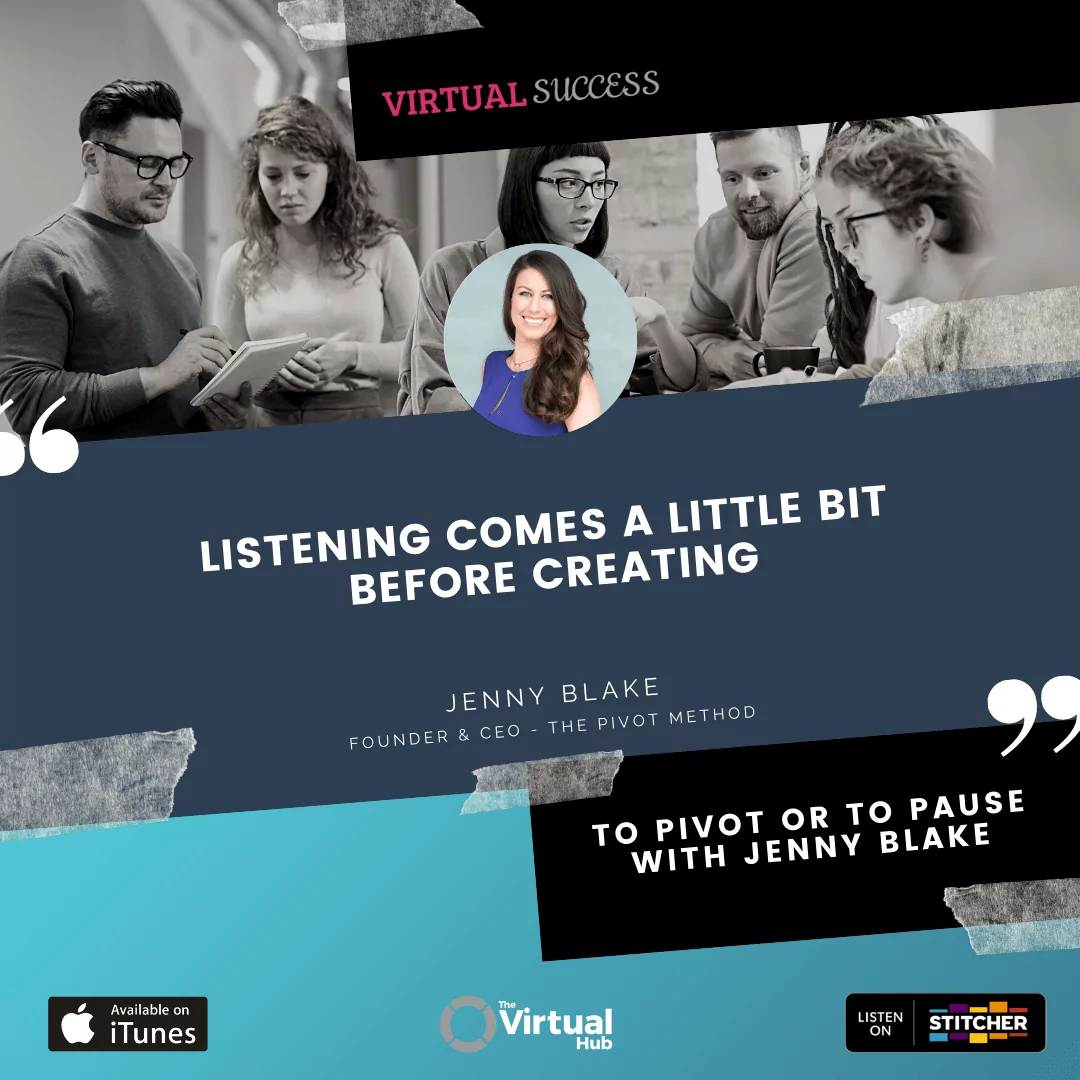
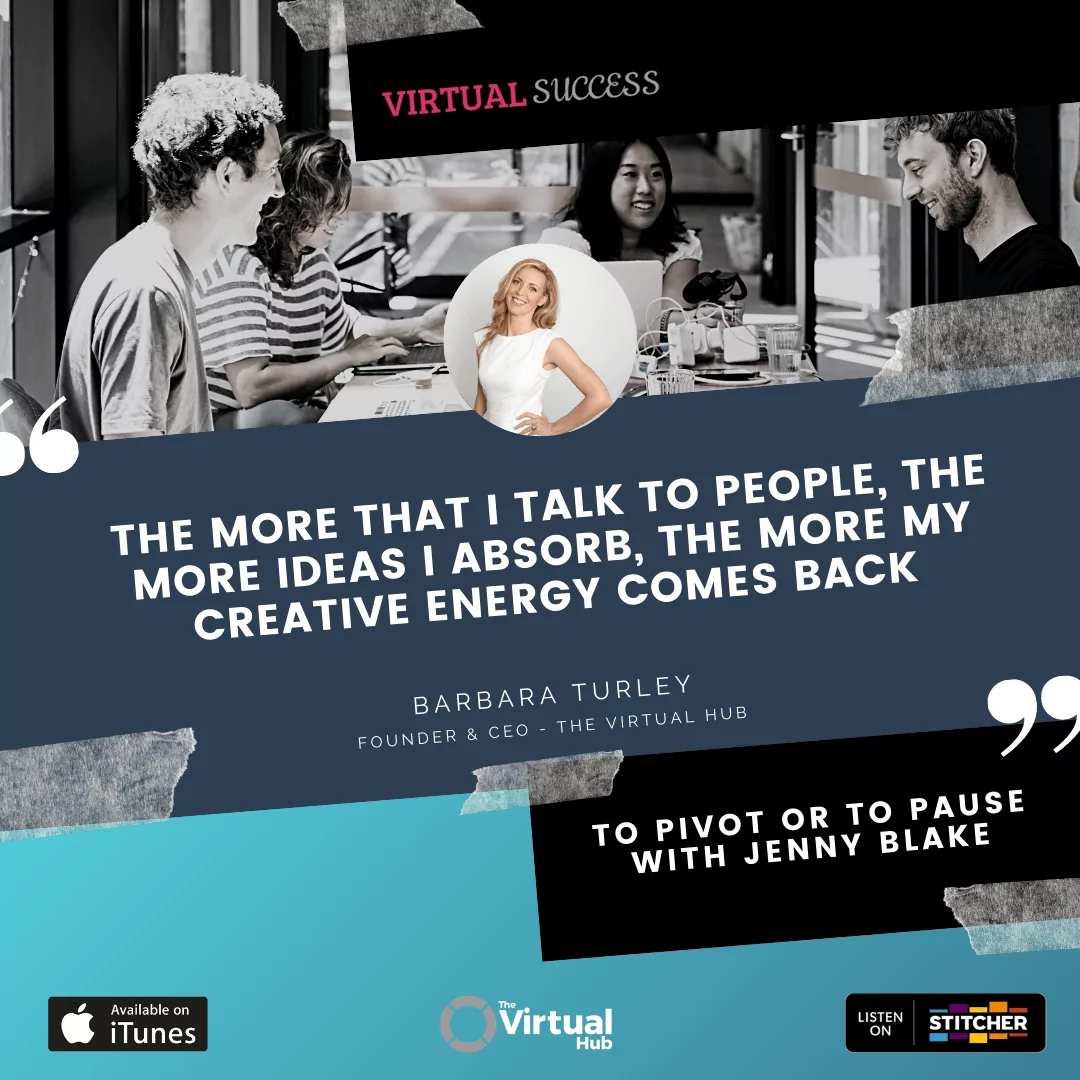
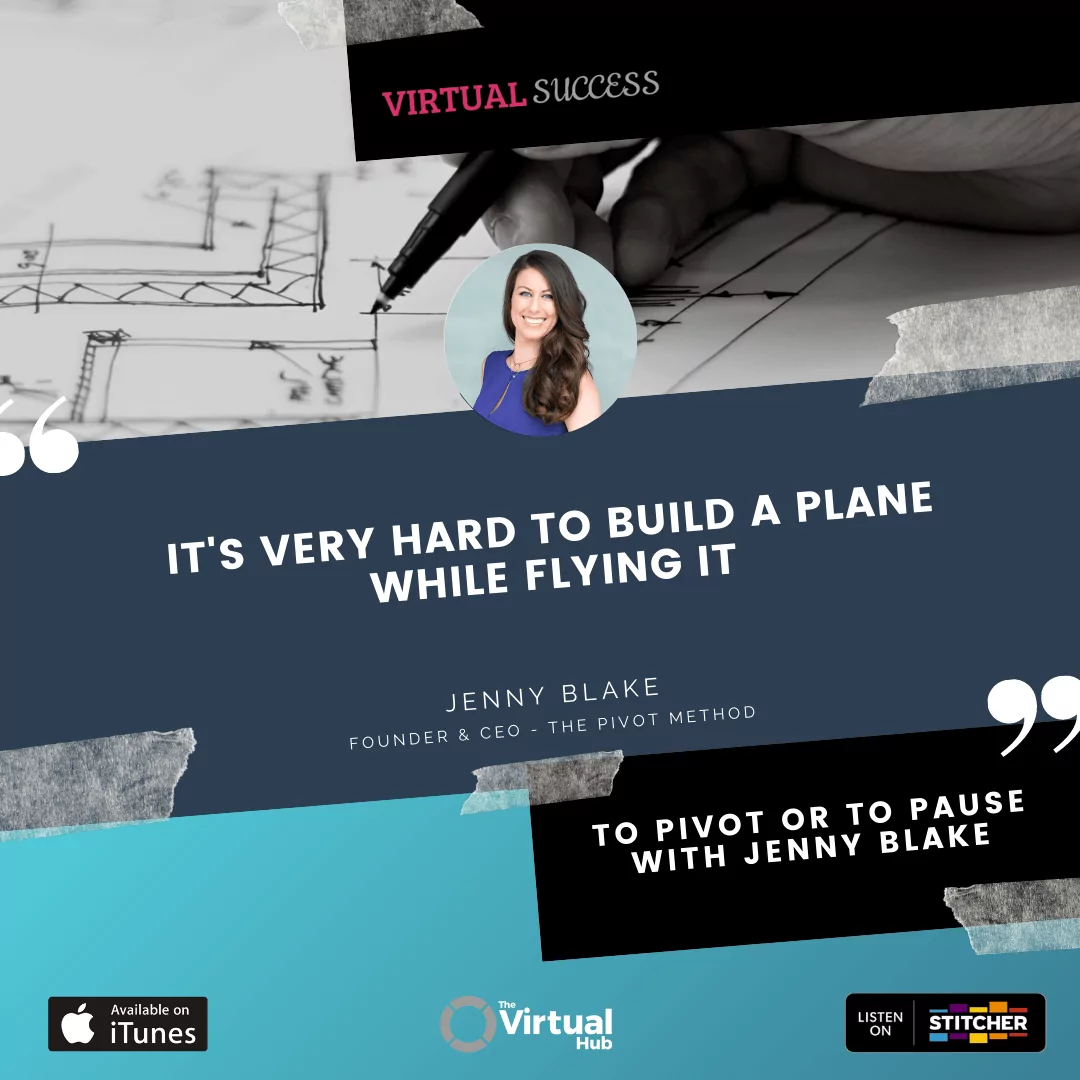
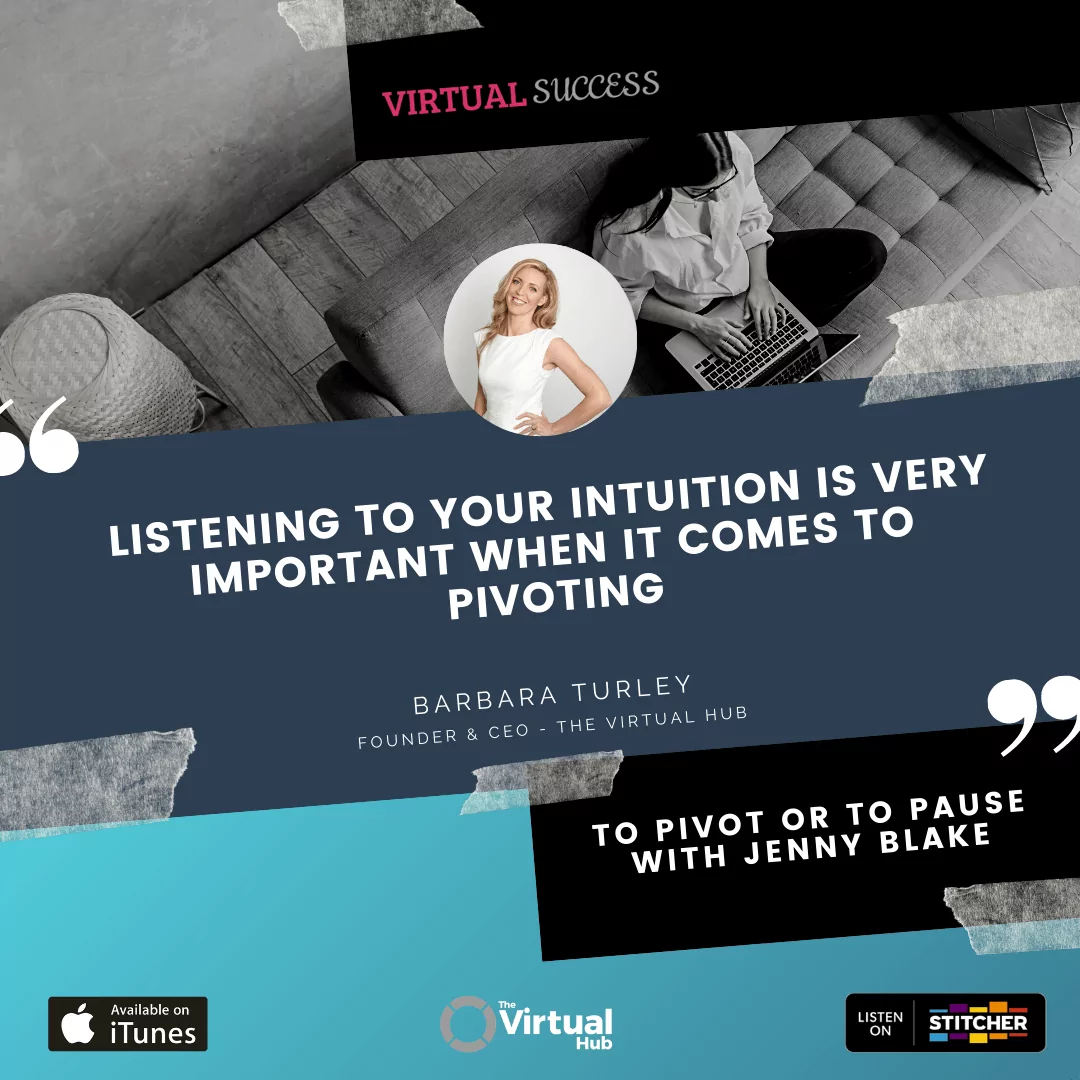
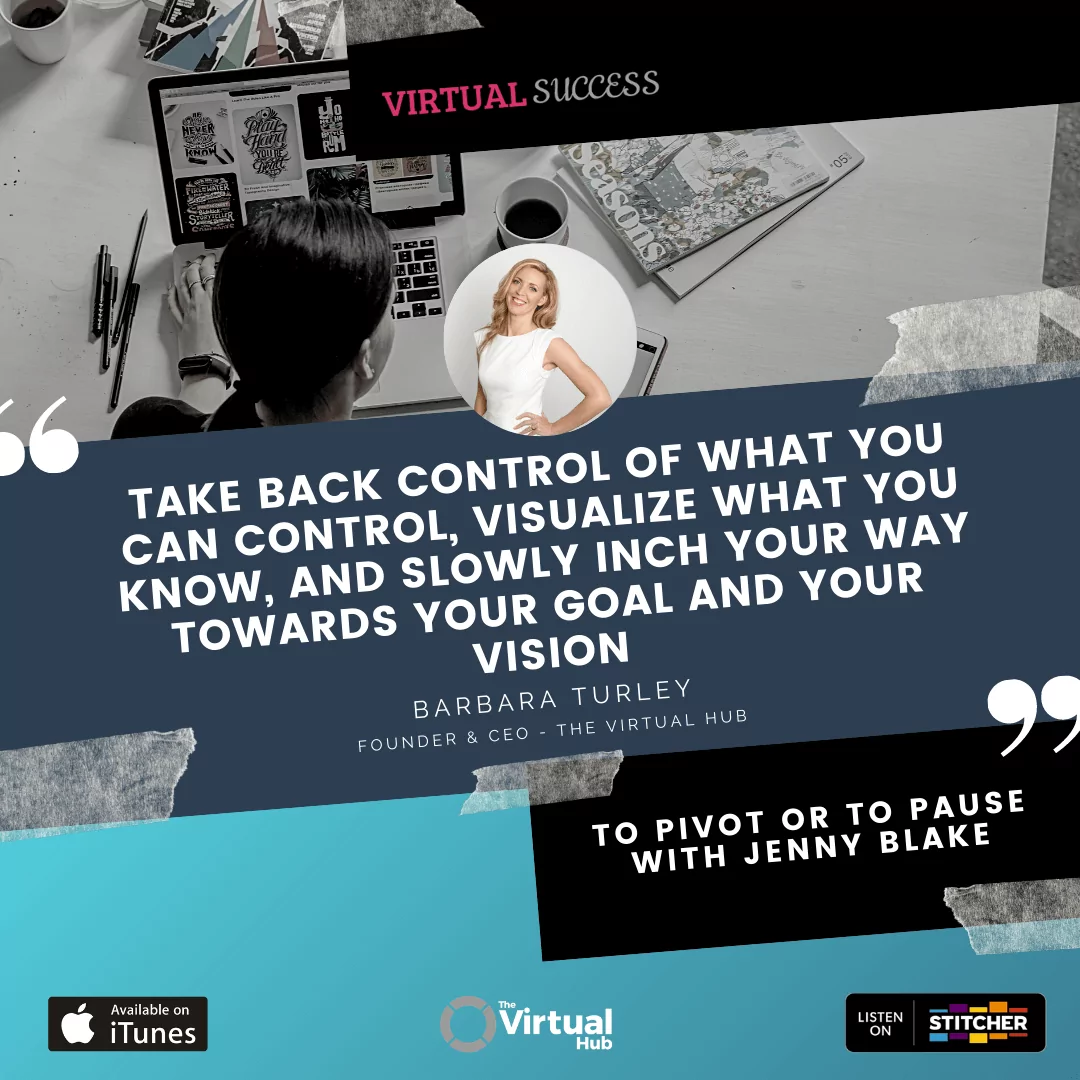
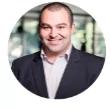 Matt Malouf
Matt Malouf Barbara Turley
Barbara Turley